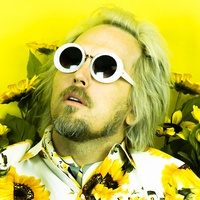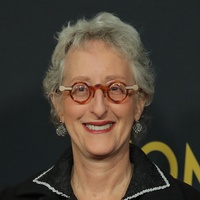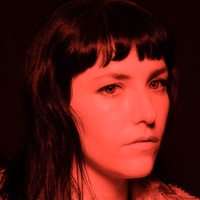As told to T. Cole Rachel, 2723 words.
Tags: Music, Film, Identity, Process, Beginnings, First attempts, Multi-tasking.
On telling stories in a variety of different formats
Songwriter and filmmaker Luke Dick on writing songs with and for other people, what it feels like to make a film about your own childhood, and why it’s healthy to juggle many creative outletsYou do a lot of different things simultaneously—you’re a songwriter for other people, you have your own band, and you just made your first film. When people ask you what you do, what do you tell them?
It depends on the day. I love making songs and that’s what’s gotten me a foothold in the creative world, really. That’s where I started. I remember writing songs when I was 12 years old, just imagining the day that I’d have a band. The songs were shit, of course, and I threw them all away, but I kept at it for years and eventually landed myself in Nashville. I was in New York for a minute, too, and that’s where I started getting my film skills up. When DSLR cameras came out it was just such a fun place to shoot. I was making these little mini-documentaries and making videos for my own music, but I hadn’t really gotten any commercial foothold or anything.
I had a bunch of friends in the ad world, so I started making music for their ads and stuff. All the while I was still making little documentaries while I was doing that. Eventually I got a publishing deal back in Nashville and started working with other writers here, as well as other artists. Finally a couple things took hold and really got out there into the public. I wrote songs with Eric Church and some other artists, Kip Moore, Dierks Bentley. All this stuff started happening while I was finishing up the Red Dog documentary project and while Republican Hair sort of started to happen. Everything was happening at once.
I’ve always made my own records. It’s always just been me. It’s a crapshoot as to what’s going to hit, because there are so many quality people making music and just making things in general. I was a songwriter and a performer when I could be. It’s always hard to keep that train going until something really takes hold. Recently a lot of things have started taking hold, but it’s taken me 20 years. I’m still just telling stories, though—now I’m just doing it in a few different ways.
I’m curious—as someone who’s also a performer, does it ever feel strange to write a song knowing that it’s not necessarily going to be for you? Do you have to think about it in a certain way in order to be able to let the songs go at the end?
I used to think of it that way a lot more. I had a shift maybe eight or nine years ago. Honestly, it was when I started making ads, and people would throw a brief at you where it’s like, “We want these kind of words. We want this kind of a feeling in whatever you come up with.” That was the first time where I’d had these conceptually honed things before I even started. It was fun. I mean, it might sound sterile, but creatively to have a task like that set for you was interesting. I’d never really had a task before, it was just “write a song.”
So after that, the notion of creativity became broader to me in terms of what you could do. When I came to Nashville and started writing songs with other people, you never knew what was going to happen. Somebody else might have the conceptual reigns that day, you know? Maybe they already have a direction, and just need you to help them flesh it out. Or maybe you are paired with an artist who already has a pretty strong vision for what they want. Writing with Kacey Musgraves, for example, she’s a strong artistic presence who has a very strong artistic vision. I’d bring what I have to the table but when she comes in, it’s to serve her project.
I really like writing songs with or for other people. I liken it to character writing, or something like that. You try to understand somebody’s character and serve that, but you also want to put your own creative vision in there. It’s like this sort of character writing where you have a Venn diagram, and you’re trying to insert your own aesthetics and perspectives into the song and have it overlap with the person you’re writing for—to have that sweet spot in the middle where your creative ideas overlap in just the right way for both of you.
In that way, the collaborative spirit in Nashville doesn’t feel hindering to me at all. It’s challenging, but it’s also just another way to stretch your creative legs and have fun somewhere else. To be honest, I don’t feel like I ever have enough to say artistically to sustain the 200 or so days a year I spend writing songs only for myself. I don’t have enough vision to fill that up. So you need other people and their vision, their ideas, to keep that process going.
Then, when it’s Republican Hair, or when it’s me working on my film soundtrack, it’s totally my vision and everything is more centered around my own aesthetic. For Republican Hair, I know what the voice is, I know how I want to say something, I know when it’s not right. These are just creative intuitions that you have as you’re making stuff. Also, at least for me, juggling a variety of projects keeps your mind moving. If you’re working on only one thing and suddenly things aren’t going well or you don’t have any ideas, it can make you feel like a failure. So between different projects—writing songs, working on my film, collaborating with other people—you’re just constantly moving around in this creative world. It keeps your mind off of things that might be just resting or waiting to find a place. It’s a way to keep moving and to keep your creativity working in the meantime.
For many creative people, so much of their ego is wrapped up in their work. It seems to me that as a professional songwriter, you have to let some of that go. It’s not necessarily about ownership, but about the best idea in the room winning out over the others.
Absolutely. Some days you walk in and you don’t have any ideas and you’re just praying that the people who are collaborating with you at least have a title or some kind of idea to work around. It’s also a kind of creative camaraderie, you know? Everybody is pulling together to make something good. I may have the idea that day or I may not. I may have a musical idea that somebody else has a title for or something like that. It takes the pressure off in some regards.
You mentioned that you were dabbling in filmmaking for years before actually making a film. Was that your original idea? To make films?
No. It was happenstance, really. I met this guy Casey Pinkston in New York. He was an Okie too but we kind of randomly came together. He had a DSLR camera and he just randomly threw some footage together set to one of my songs. I watched what he was doing and the equipment wasn’t that expensive so I bought a camera and decided to try making some things. Here I was in New York and I had free time. I was teaching philosophy as an adjunct and also making music and stuff on the side. I had days where I didn’t have classes to teach so I would just get the camera out and study composition. My technical prowess wasn’t all that, but composition wise, I started to understand it. Then you just sort of go off to the races and do whatever you want to, dream up whatever project you want to dream up.
So it was kind of an accident. I’d always been attracted to visual art, especially movies and films, but it seemed so out of reach 15 years ago. But with the advent of DSLR cameras, with $1,000 you could have a really quality picture at your fingertips. So that’s what I did, and then we just started making stuff. We made web commercials and started making money. We also made little mini-documentaries and stuff like that. So that was the beginning of it, just a new place that was accessible to me, and also another place to put music.
Making your first documentary feature is a tall task no matter what, but when the film is a story about your own childhood and features your mother, that’s a whole extra layer of complication. How was the experience of making Red Dog, and what did you learn from the experience?
I knew that my mom was a great storyteller, that was the first thing that tipped me off that this could be a project that I could chase down. The way I could chase it down would mostly just involve me sitting down with my mom, which I knew I could do. I didn’t know exactly that the arc would be, or how the story would stream together, or what other characters would be involved. We didn’t have any other characters in the beginning, we just had me and my mom. But just like with any kind of project, the arc starts to present itself. Unexpected things happen in interviews and then other subjects start to surface, which then start to dictate the details.
Along the way, about two years ago, we ran a Kickstarter campaign, and that brought even more characters out of the woodwork. The project became a kind of regional, viral thing because the Red Dog is such an infamous place in Oklahoma. Everybody knows what it is. There was a radio station that talked about the project and then lots of people just shared it of their own volition. So that helped bring some more characters to me, and more subjects that we could interview.
Also, a few of the dancers who are in the movie were already talking to each other on Facebook so I was able to reach out to them that way. We could start the interview process over the phone and stuff like that, and just see who was interested and who had a story that could work within the context of the film. There was this big unfolding that happened that all started with my mom.
As the film shows, you had a pretty raucous, unconventional childhood—growing up in and around this bar in Oklahoma City—but I like that the film is never judgmental about that. Was making the film itself a way of coming to terms with how you felt about the way you were raised?
There was a certain way that I felt about how we should treat these characters. You could easily sensationalize this or that, or make it take a judgmental turn of some sort, but that didn’t feel right to me. It was just—here’s the story. Even in the midst of all these weird death and drug stories or whatever, there’s a strange levity to it and also a hominess to it. That is basically my mom’s perspective. It behooved the whole project to stick with that feeling.
I never wanted it to feel judgmental. We were interviewing the bar’s owner and the owner’s son and all along they thought it was going to be controversial in some way. They were always trying to seek reassurance from me that it wasn’t this exposé on the Red Dog, and I was just like, “No, it’s really about my mom and family.” I don’t think until they saw it that they really believed me. The theme of the movie is really about parenthood. It just happened that the parenting in this case was happening in a very unexpected place.
Anyone who’s ever spent a long time working in a bar or a restaurant can relate to the way that a staff starts to feel very familial. Every place—particularly bars—have their own culture.
Totally. I mean, these people were around me even after my mom left the bar. She married a bartender from there eventually and that’s who raised me. That place and those people never left me in a way, even though we left the bar. The culture and the friends and family that she made there never left me. It’s also weird to think that if this topless bar in Oklahoma never existed that I also wouldn’t exist. At the end of the day, I have to thank these people for my life, for creating the place where I was born.
As a creator, what has been your takeaway from this experience?
We are currently shopping for distribution and doing festivals and all that, so in some ways we’re at the end of one process and at the starting point of another process, just trying to get the film out there. We have a couple of feature ideas that we wanted to tackle eventually, that we really like, but seeing people’s responses to this film and how they have reacted to my mom makes me wonder about what I should do next. Rather than try to turn out a comedy or a horror film or something, it does feel like we should try and do something that feels as important as Red Dog does to me. It feels like the most significant piece of art that I’ve ever created. That’s kind of a pretentious thing to say, but the scope of it is pretty large and it’s fleshed out in interesting ways with music and with detail and with a lot of humanity. I don’t know how or what the next film project would be that would feel like that, but it is something I’m thinking about.
And while all of this other stuff is happening, you’ll be putting out another Republican Hair record?
Yeah, Republican Hair has kind of just snowballed into this funny thing—a kind of flippant, street art project for me that is also really cathartic. We’ve opened for a lot of grimy Southern country bands, and we have our own following that’s pretty significant in Nashville. It’s a funny phenomenon, seeing people dress up for the shows and stuff like that. It means something to me. It provides this cathartic experience that’s fun and absurd and strangely both unsentimental and sentimental at the same time.
Aside from that, I also just wrote a bunch of songs with Miranda Lambert that I’m excited about. She’s in a great place as an artist, so that was fun. Being able to serve other artists when I’m not on the road feels good to me. It’s a funny time right now, where I can just try and do all of these things that are important to me. We’ll be taking the film to some festivals and there are some places that have asked that the band come and play as well. We can have an all-out, multimedia extravaganza of sorts wherever we go. “Here’s this thing we made! Here’s our band!” Then we pack up our tent and move on to the next town. It’s not a bad way to live, right? You put all these things out in the world and then you just wait and see what happens. You go on to the next thing. You make something new.
Luke Dick Recommends:
1.) Lists. Get ahead in life. Make boxes to check. Maybe they’ll lead you somewhere. Don’t forget the milk.
2.) The right bed. Sleep is important.
3.) Vonnegut. He’s my travel companion and feels like he’s right there in my head telling jokes and making me feel swell even though the world is absurd.
4.) Friends who are smarter and and different from you and better than you at something. This is tricky—you kind of have to trick them into being your friend with charm or money or something. But they’ll make you less dumb than you are now, and they likely won’t ever be yes men.
5.) Brazilian Jazz. It’s weird. It’s soothing. It can romanticize even the most ridiculous experience. Jobim. Gilberto. Regina. Do it.




